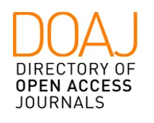The Development of Experimental Physiology
The Laboratory and Vivisection in Victorian England
DOI:
https://doi.org/10.24117/2526-2270.2024.i17.06Keywords:
Anti-vivisection movements, Experimental physiology, Physiological laboratory, Victorian era, VivisectionAbstract
In the mid-19th century, experimental physiology emerged as an important field of research, coinciding with the flourishing of various other scientific disciplines. The experimental approach in physiology involved vivisection, which led to an increase in the number of experiments performed on living animals. The growing interest in this discipline had consequences not only within the scientific community but also in society. Through a historical study of this period, the specificities of the development of physiology in Britain – where ethical opposition to experiments was most pronounced – will be described. This aims to highlight two key consequences: the perception of the physiological laboratory as a modern and specialized environment for science and the need for regulation of the use of living animals for scientific purposes during the period.
Downloads
Published
Issue
Section
License
Copyright (c) 2024 Giovanna Perez Altieri, Maurício de Carvalho Ramos

This work is licensed under a Creative Commons Attribution 4.0 International License.












